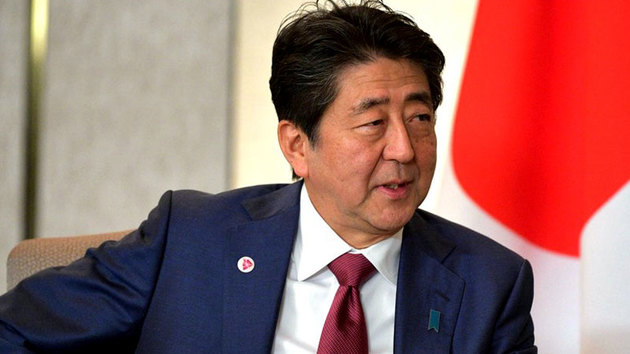Japanese Prime Minister Shinzo Abe said he had decided to resign because of illness, after weeks of speculation about the conservative leader's political future following recent visits to the hospital.
In a news conference in Tokyo, Abe told reporters that he had been "struggling" with his health, which had begun to deteriorate in mid-July, and he was ready to call time on his leadership of the world's third-largest economy.
"My poor health should not lead to wrong political decisions," he said. "As I'm no longer able to meet the expectation of the mandate of the people of Japan, I have decided that I should not stay in the position as prime minister anymore. So I have decided to step down."
Abe is known to have battled chronic ulcerative colitis, and public broadcaster NHK reported that medical tests conducted Aug. 17 showed that his condition had worsened. An alternative medicine was prescribed when Abe returned to the doctor a week later but the prime minister was told treatment would take a year, the broadcaster reported.
Abe, 65, is Japan’s longest-serving leader, having overseen a period of relative stability in a nation previously known for frequent leadership changes. He began his current term after a landslide victory in 2012, following an earlier stint as prime minister in 2006-07.
His tenure has been marked by efforts to revive Japan’s economy through a policy package known as Abenomics, although he failed to follow through with the fundamental changes many economists believe were necessary.
Other policies have included a contentious expansion of Japan’s military defenses. Abe tried unsuccessfully to modify Japan’s pacifist postwar constitution to explicitly recognize the role of the country’s military self-defense forces, as part of a broader effort to counter the threats of a rising China and nuclear-armed North Korea.
Challenges faced by Abe’s government have included Japan’s recovery from the 2011 Fukushima nuclear disaster, and demographic difficulties stemming from Japan’s aging population, Washington Post reported.
Abe had hoped to signal Japan’s revitalization by hosting and presiding over the Olympics in Tokyo this summer, before the coronavirus pandemic forced officials to defer the Games until 2021. The prime minister has faced criticism for his handling of the health crisis, and his support slipped to near record lows in recent months.
Shinzo Abe explains his resignation

9115 views





